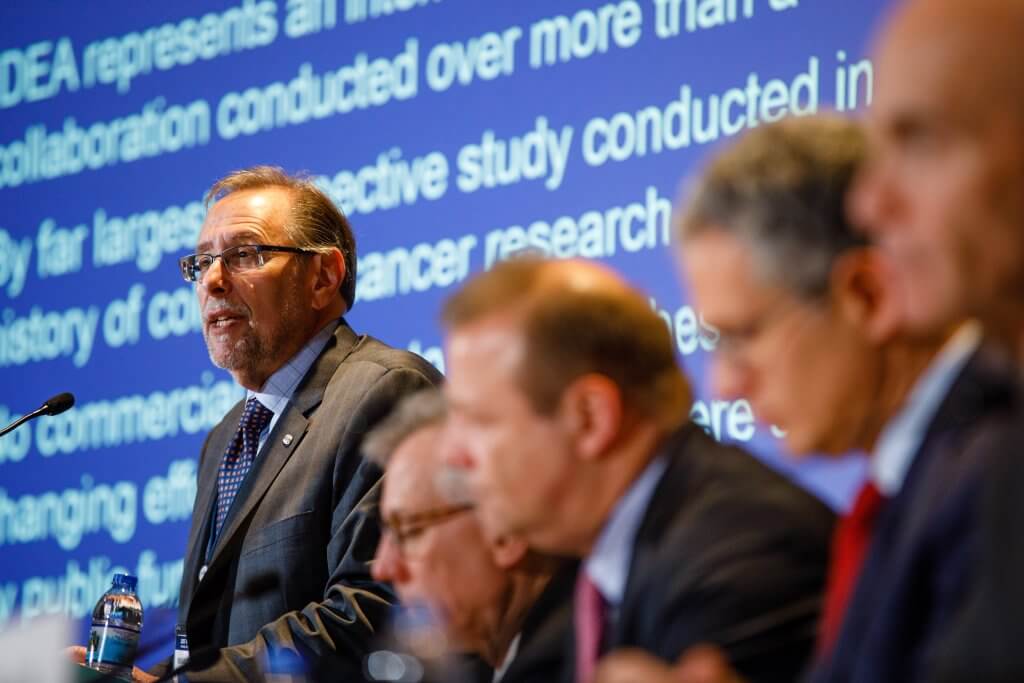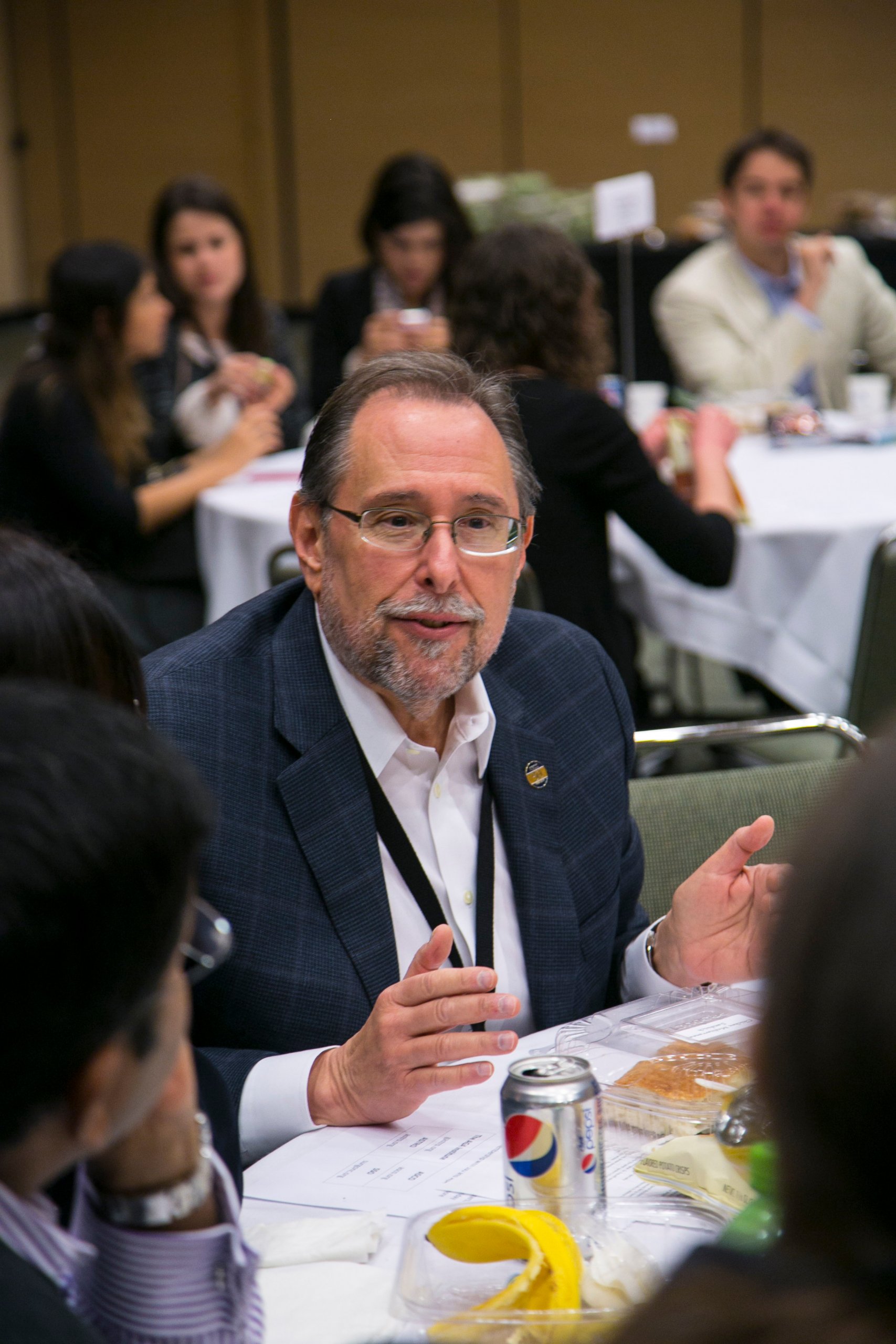Cancer: The Difference 40 Years Makes
- Dr. Richard Schilsky is an oncology luminary and expert in gastrointestinal cancers and drug development. His career has bridged oncology's early wave of progress/cures and today's precision medicine era.
- The expected outcome of a cancer diagnosis today is better than ever.
- Developments in understanding cancer, as well as improvements in diagnostic tools and treatment options have been significant.
- As Dr. Schilsky prepares to retire we talked to him about how he believes cancer will be either curable or treatable as a chronic illness.
"The possibility of a good outcome and being cured of cancer is greater today than it ever was," Schilsky tells SurvivorNet. "About two-thirds of people diagnosed with cancer can expect to be alive five years after their diagnosis, and a large portion of those will have been cured of that cancer completely."
The Difference 40 Years Makes
Read MoreWhat Has Changed?
Schilsky said when he started his career in the 1970s there was the possibility that some cancer could be cured, but it was only those cancers that were caught very early. The options to treat them were radiation, surgery and a few drugs, and those drugs often had terrible side effects. Today, it's a whole new landscape.
“I don't think it's going to take another 40 years to get to the point that most cancers are prevented, cured or treated like a chronic illness.”
Schilsky said without a doubt, the biggest single development has been that through basic scientific research there is a much better understanding today of what causes cancer and what enables it to grow and spread. He said they've found that a great deal of cancer is caused by genetic mutations in normal cells that enable them to turn into cancer cells. Knowing that has allowed them to design drugs that target those cells, interrupt the growth and get more control of the cancer.
He said they've also come to understand other contributors, such as infections, which cause about 20 percent of all cancers. For example, if people can be vaccinated against Hepatitis B and human papillomavirus (HPV), the cancers caused by them can be eradicated. He also pointed to public service campaigns about the impact of tobacco as a key cause of multiple cancers that have contributed in a major way to stopping cancer-causing behavior.
Related: Digital Guide: Ovarian Cancer Imaging Tests
Developments in imaging have also been major game changers. Schilsky says MRI scans, PET Scans and other imaging tests allow doctors to see where cancer is in the body, how it has spread and how it's affected by treatment.

"Years ago we had none of those things," Schilsky tells SurvivorNet. "We had a very limited way of understanding the full extent of how cancer spread in a patient's body. Today, we really have pinpoint imaging that allows us to monitor it over the entire course of treatment."
"40 years ago, drugs were a very blunt tool to treat cancer, and in many cases they caused horrible side effects”
Not only are there a variety of new and effective diagnostic and treatment options, but there are also options to manage the side effects of the drugs. He described walking through cancer units years ago and all the patients receiving chemotherapy had buckets nearby because of the terrible nausea. Today, he says you can walk through a room where people are being administered chemotherapy and see them watching TV and eating lunch comfortably.
"40 years ago, drugs were a very blunt tool to treat cancer, and in many cases they caused horrible side effects," Schilsky said. " Now we have very precise drugs that are much more effective, with fewer side effects, and the supportive care drugs we have now are far superior. It's a huge difference in the quality of life for patients."
The Future Of Cancer
So, what can we expect a cancer diagnosis to mean in another 10 or 20 years? Schilsky says things will only get better.
"We still have work to do but we are much further along than we were 40 years ago," Schilsky tells SurvivorNet. "And I don't think it's going to take another 40 years to get to the point that most cancers are prevented, cured or treated like a chronic illness."
He went on to say we can expect better strategies for early detection of cancer when it’s still in a very curable stage. For example, he said there are blood tests in development now that can detect cancer before there are any symptoms. As those tests continue to be studied and proven useful, that offers a great opportunity to diagnose the cancer and intervene very early on.

Related: Second Opinions on Your Cancer Diagnosis or Treatment: Do You Need One?
Schilsky also says he's hopeful that they'll be able to implement vaccinations on a global level to eradicate liver and cervical cancer. "Those are major causes of disability and death around the world, even though they're not that common in the United States," he said.
He says researchers will continue to build on current treatment approaches. For example, he says one of the most exciting developments in the past several years has been the introduction of immunotherapies. He said while they don't work in every patient and sometimes have formidable side effects, when they do work, they're able to achieve great results.
He said even the strategies used to produce the COVID-19 vaccine may have applicability in the treatment of cancer going forward. The same technology may be able to be used to make a vaccine that is unique to cancer cells, and then if cancer arises in the body, it might stimulate an immune response to fight it.
Related: A COVID-19 Vaccine May Be on the Way: What Those With Cancer Need to Know
"As our understanding of what causes cancer continues to advance and as these immune technologies continue to be brought into clinical medicines, the opportunity to prevent and treat cancer is really exciting," Schilsky tells SurvivorNet.
Schilsky says it's all these things togethera better understanding of cancer, better treatment options and better supportive carethat has made the experience of going through cancer so much better for most families today. That doesn't mean it's not difficult and that there aren't still incurable cases, but there is more hope than ever.
"The prospects of a good outcome after a cancer diagnosis are so much greater now than they ever were before," Schilsky tells SurvivorNet. "I hope anyone diagnosed with cancer will take the time to gather all the information and work with their provider to come up with the best treatment plan. More often than not, it's going to be a good outcome."
Learn more about SurvivorNet's rigorous medical review process.


